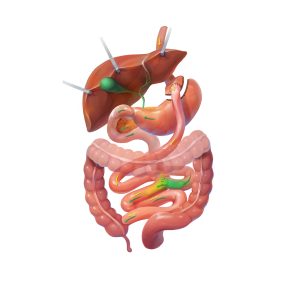Gastric Bypass Miami, Florida
Gastric Bypass, also called Roux-en-Y gastric bypass surgery, calls for the reduction of the size of the stomach pouch. We will then attach a Y-shaped section of the small intestine directly to the newly formed pouch. Doing this allows food to bypass a large portion of the small intestine, which limits the absorption of calories and nutrients. The smaller stomach pouch allows our patients to feel fuller sooner and the body absorbs fewer calories.
Expected Weight Loss with Gastric Bypass
Gastric bypass patients can expect to lose up to 65% of their excess weight. Of course every procedure is unique so this number will vary.
Expected Health Benefits
 Conditions associated with morbid obesity (often referred to as co morbidities) include:
Conditions associated with morbid obesity (often referred to as co morbidities) include:
- High Blood Pressure
- Type II Diabetes Mellitus
- High Cholesterol or Triglycerides
- Obstructive Sleep Apnea
- Gastric Reflux
- Obesity Hypoventillation Syndrome
- Fatty Liver Disease
- Heart Disease
- Congestive Heart Failure
- Urinary Stress Incontinence
- Metabolic Syndrome
- Most patients will experience full remission or significant improvement in their obesity-related medical problems.
Expected Recovery
Patients may be able to leave the hospital after two days and return to light work in 1 to 2 weeks.
Potential Concerns of Gastric Bypass
Dumping syndrome can occur from eating high-fat and high-sugar foods. It is not considered a health risk, but the results can be unpleasant and may include vomiting, nausea, weakness, sweating, faintness, and diarrhea.
Patients must take daily multivitamin and calcium supplements for the rest of their lives.
The stomach, duodenum, and parts of the small intestine cannot be seen easily using X-ray or endoscopy if there are problems after surgery.



